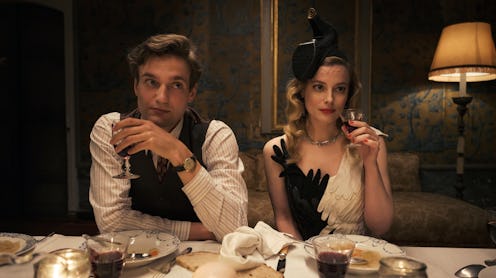Streaming
Is Netflix’s Transatlantic Based On A True Story?
Here’s everything to know about the show’s harrowing real-life inspiration.

If you’re a fan of historical shows and movies, Netflix’s Transatlantic might be on your watch list (if you haven’t breezed through it already). The series, which premiered on April 7, follows a group known as the Emergency Rescue Committee — a team that helped thousands of refugees escape Nazi-occupied France in the early 1940s. Of course, there’s a dramatic twist: as the streamer’s official synopsis puts it, “the threat of mortal danger gives way to unexpected collaborations and intense love affairs.”
So, is Transatlantic based on a true story? Indeed, the Emergency Rescue Committee was a real group. It’s actually one of the predecessors to the modern International Rescue Committee, which still supports people in humanitarian crises to this day. At the time Transatlantic takes place, though, the ERC was formed to carry out a specific purpose: get artists, intellectuals, and others on the Nazis’ “most-wanted list” to safety, per Rescue.org.
American journalist Varian Fry (played by Cory Michael Smith in the Netflix series) was the organizer of these efforts. According to the United States Holocaust Memorial Museum, he enlisted the help of 200 Americans to get the committee started — then traveled to France, where he teamed up with figures such as Mary Jayne Gold and Albert Hirschman (played by Gillian Jacobs and Lucas Englander, respectively).
It was their story and Julie Orringer’s book The Flight Portfolio that inspired Transatlantic creator Anna Winger to bring “the greatest story never told” to Netflix, she explained to The Hollywood Reporter. She had a few personal connections, too: Her father was a Harvard professor who worked with Hirschman and protested alongside activist Lisa Fittko, who also worked with the ERC.
Winger had also volunteered to help Syrian refugees move to Berlin in 2015 — which further inspired her desire to bring the earlier crisis to screen. Filming took place where the ERC really worked in Marseille, Winger told THR.
But as Winger (who also co-created Unorthodox) explained, Transatlantic isn’t meant to be a traditional historic drama. “Well, you read everybody else’s work, you read all the history, and then you have to kind of leave it behind to write the fiction,” she said. “Because we don’t know what people were really saying behind closed doors, we don’t know exactly who was sleeping with who.”
That last bit proves important to the show, for a good reason. “For me, the story is really about the ways in which friendship and romance, and even sex, create community, and remind us that we’re alive,” Winger said. “That even in the darkness, these are the things that make us human beings. I was writing this during the COVID lockdown, and that aspect became crystal clear to me.”